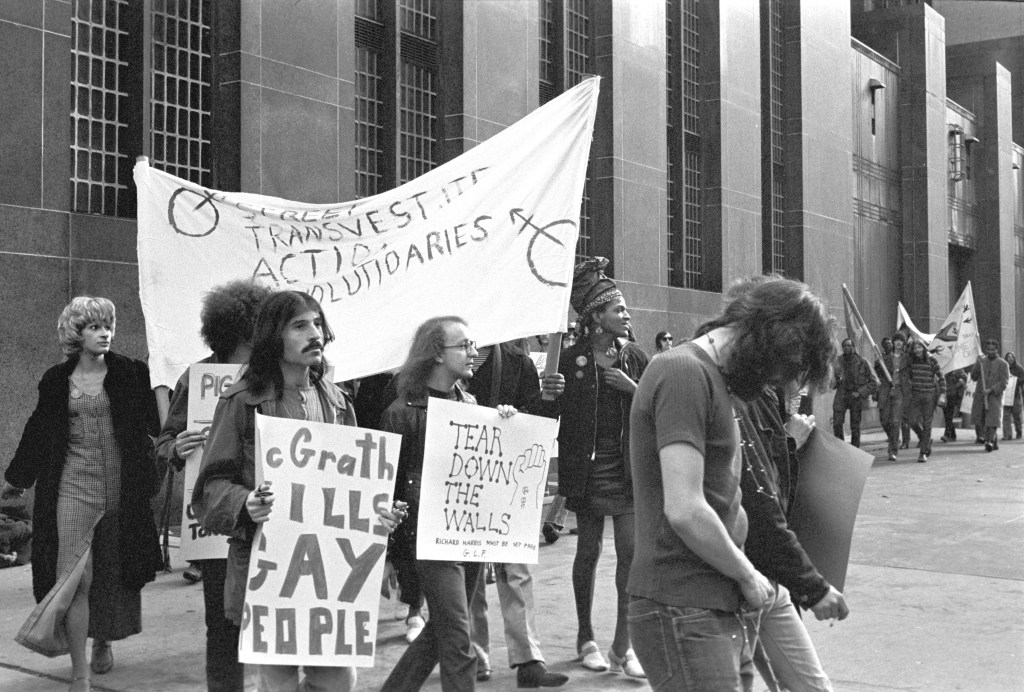‘What the f**k’s wrong with you all?’ Sylvia Rivera’s fiery 1973 Pride speech still resonates today

Sylvia Rivera co-founded Street Transvestite Action Revolutionaries. (WikiCommons)
You may already know about trailblazing transgender figure Marsha P Johnson, but what about her best friend Sylvia Rivera?
A prominent gay liberation and transgender rights activist, Rivera was a veteran of the Stonewall riots, and alongside Johnson she is credited as one of the figures of the modern transgender liberation movement.
She is often simply referred to as a close friend of Johnson, but Rivera was also essential in the LGBTQ+ movement occurring in 1990s New York City, where she participated in the Gay Liberation Front.
Who was Sylvia Rivera?
Rivera is remembered in the history books for being present during the 1969 police raid on a queer nightclub that sparked the Stonewall riots.
Some historians debate the details of what exactly happened at night. For instance, Johnson and Rivera are often labelled as the women who “threw the first brick at Stonewall.” However, historians don’t believe any brick was thrown and some even debate whether Rivera was present when the raid happened.
Most note that Rivera resisted arrest and led a series of protests against the raid. This was not the first time Rivera was involved in activism.
“Before gay rights, before the Stonewall, I was involved in the Black Liberation movement, the peace movement,” Rivera said in an interview in 1989.
“I felt I had the time and I knew that I had to do something. My revolutionary blood was going back then. I was involved with that.”
The first Pride parades then started in 1970, though at the time Pride wasn’t very inclusive. Trans people were discriminated against and barred from participating in the Pride parades.
In 1973, Rivera joined the Pride march but was forbidden from speaking… but you can’t tell Silvia Rivera what to do.
“What the f**k’s wrong with you all?”
She grabbed the microphone and told the crowd: “Y’all better quiet down!”
“I’ve been trying to get up here all day for your gay brothers and your gay sisters in jail that write me every motherf***ing week and ask for your help and you all don’t do a goddamn thing for them.”
“I have been beaten. I have had my nose broken. I have been thrown in jail. I have lost my job. I have lost my apartment for gay liberation and you all treat me this way? What the f**k’s wrong with you all? Think about that!”
“I do not believe in a revolution, but you all do. I believe in the gay power. I believe in us getting our rights, or else I would not be out there fighting for our rights.”
Her speech was met by the crowd booing her off stage.
Rivera passed in 2002, aged 50, after complications from liver cancer. Her legacy lives on as a key figure in transgender activism.
The Sylvia Rivera Law Project was founded in Rivera’s honour and is a non-profit organisation run by and for low-income trans communities and trans communities of colour. The organisation provides legal services and education and works towards policy change through community organising.
Rivera was one of the inaugural fifty American “pioneers, trailblazers, and heroes” inducted on the ‘National LGBTQ Wall of Honor’ within NYC’s Stonewall National Monument.
The Stonewall National Monument marked the first US national monument dedicated to LGBTQ+ history and rights.

How did Marsha P Johnson know Sylvia Rivera?
Rivera and Johnson’s paths crossed in NYC in 1963. They were both drag performers and notable figures in Greenwich Village street life.
They bonded over their similar perspectives, fighting spirit for activism and collective understanding of the necessity of a supportive LGBTQ+ community.
“She was like a mother to me,” Rivera said of Johnson.
Together, they not only became key figures following the Stonewall riots but together founded the Street Transvestite Action Revolutionaries, a group dedicated to helping homeless young drag queens, gay youth, and trans women.
They also opened the first LGBTQ+ youth shelter in North America.
Throughout their lives, both women lent their voices to POC, working class and trans communities.
Marsha passed away in 1992 at 46, and the details of her death are still widely debated. Police ruled her death as a suicide but the community insisted that she was murdered, as her death occurred at a time of high anti-LGBTQ+ violence.
Rivera and Johnson’s legacies are intertwined. In 2019, the pair were commemorated with a monument in New York’s Greenwich Village, honouring the 50th anniversary of Stonewall.
How did this story make you feel?

